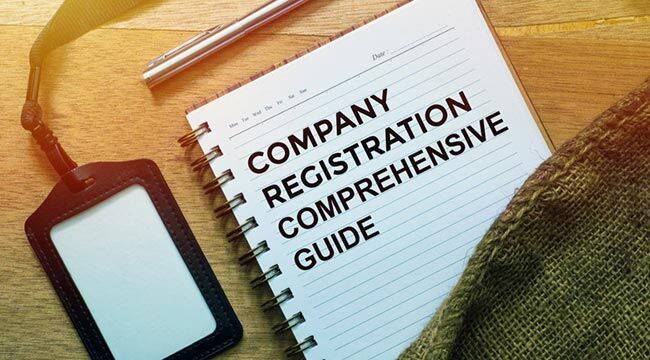Thailand’s continuous economic progress can be attributed to the presence of sufficient infrastructure and an efficient workforce backed by strong government support. If you are in Thailand and would like to start your own business, it is advisable to acquire legal assistance from an expert lawyer to deal with all the legalities of establishing a corporate entity under Thai law.
Setting up your own business in Thailand entails certain legal precedents and could take several weeks. Take the burden out of this process by having a trusted lawyer communicate on your behalf. Having the best legal counsel assures that you avoid any unnecessary oversight and delays.
Listed below for your reference are the different Business Structures and the steps necessary to form a company.
Types of Business Structures
PARTNERSHIP
Thai and Western concepts of partnership are broadly similar. Thailand provides for three general types of partnerships: Unregistered ordinary partnerships, Registered ordinary partnerships and Limited partnerships.
LIMITED COMPANIES
There are two types of limited companies, i.e. private or closely held companies and public companies. The first is governed by the Civil and Commercial Code, the second by the Public Company Act.
Private Limited Companies in Thailand have basic characteristics similar to those of Western corporations. A private limited company is formed through a process that leads to the registration of a Memorandum of Association (Articles of Incorporation) and Articles of Association (By-laws), as its constitutive documents. A minimum of three shareholders is required at all times. A private limited company may be wholly owned by aliens. However, in those activities reserved for Thai nationals, aliens’ participation is generally allowed up to a maximum of 49 percent.
Public Limited Companies registered in Thailand may, subject to compliance with the prospectus, approval, and other requirements, offer shares, debentures, and warrants to the public and may apply to have their securities listed on the Stock Exchange of Thailand (SET). A minimum of 15 promoters is required for the formation and registration of the Memorandum of Association of a public limited company and the promoters must hold their shares for a minimum of two years before they can be transferred. The Board of Directors of a public limited company must have a minimum of five members at least half of them are Thai nationals.
JOINT VENTURE
A joint venture may be described in accordance with general practice as a group of persons (natural and/or juristic) entering into an agreement in order to carry on a business together. It has not yet been recognized as a legal entity under the Civil and Commercial Code. However, income from the joint venture is subject to corporate taxation under the Revenue Code, which classifies it as a single entity.
REPRESENTATIVE OFFICE
A representative office is limited in engaging in non-profit activities. In order to form a representative office, at least one of the following purposes would need to be sought for the purposes of limited “non-trading” activities:
- The business is to search for the source of goods or services in Thailand for the headquarters overseas;
- To check the quality and quantity of the product ordered by the headquarters overseas;
- To give advices concerning the goods of the head office sold to agents and consumers;
- To supply the information of the headquarters’ products to the customers in Thailand;
- To report the economic movement in Thailand to the headquarters
How to Form a Company
STEP 1: CORPORATE NAME RESERVATION
The name to be reserved must not be the same or close to that of other companies. Certain names are not allowed and therefore the name reservation guidelines of the Department of Business Development of the Ministry of Commerce should be observed. The approved corporate name is valid for 30 days.
STEP 2: FILING OF MEMORANDUM OF ASSOCIATION
A Memorandum of Association to be filed with the Department of Business Development must include the name of the company that has been successfully reserved, the province where the company will be located, its business objectives, the capital to be registered and the names and information of the promoters.
The capital information must include the number of shares and the par value. At the formation step, the authorized capital, although partly paid, must all be issued. Although there are no minimum capital requirements, the amount of the capital should be respectable enough and adequate for the intended business operation.
STEP 3: CONVENE A STATUTORY MEETING
Once the share structure has been defined, a statutory meeting is called during which the Articles of Incorporation and bylaws are approved, the Board of Directors is elected and an auditor appointed. A minimum of 25 percent of the par value of each subscribed share must be paid.
STEP 4: REGISTRATION
Registration of the company is done at the Department of Business Development. This can be accomplished in 1-3 days depending upon each case. Registration timeline may vary according to several factors such as types of business activity the company will engage into, the promoters’ cooperation in complying the required documents, and the availability of the directors to the sign the incorporation documents.
STEP 5: TAX REGISTRATION
Businesses liable for income tax must obtain a tax I.D. card for the company from the Revenue Department. If the business’ gross income in the same fiscal year has reached 1.8 million baht, the business is generally required to be in the VAT system.
REPORTING REQUIREMENTS
The company limited must prepare the financial statement once a month in every twelve (12) months and at least one auditor shall audit to propose to the ordinary shareholder’s meeting to approve the financial statement within four (4) months from the closing date, and submit the financial statement to the Business Information Service Office, Department of Business Development, or any provincial business development office within one month from the date of financial statement’s approval although such businesses have not yet been started or have not ceased temporarily.
Specifically, Section 1206 of the Civil and Commercial Code provides rules on the accounts that should be maintained as follows:
The company is likewise obliged to file financial statements and VAT reports with the Revenue Department.

For information and assistance on how to start your company in Thailand, please fill out the form below and send it to us.



































